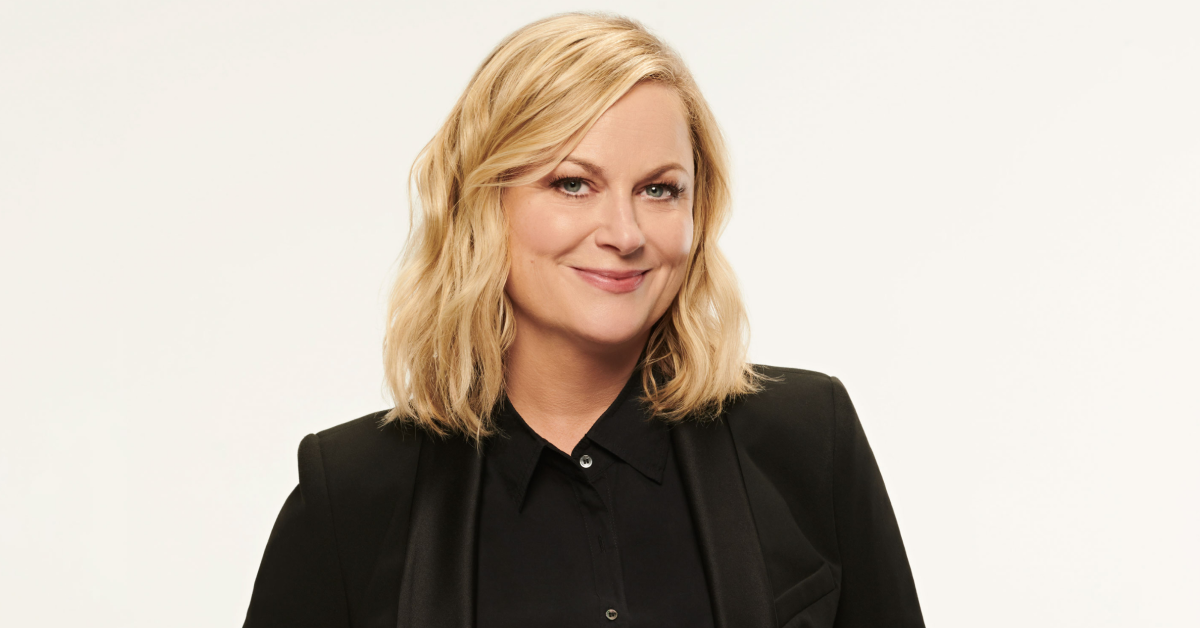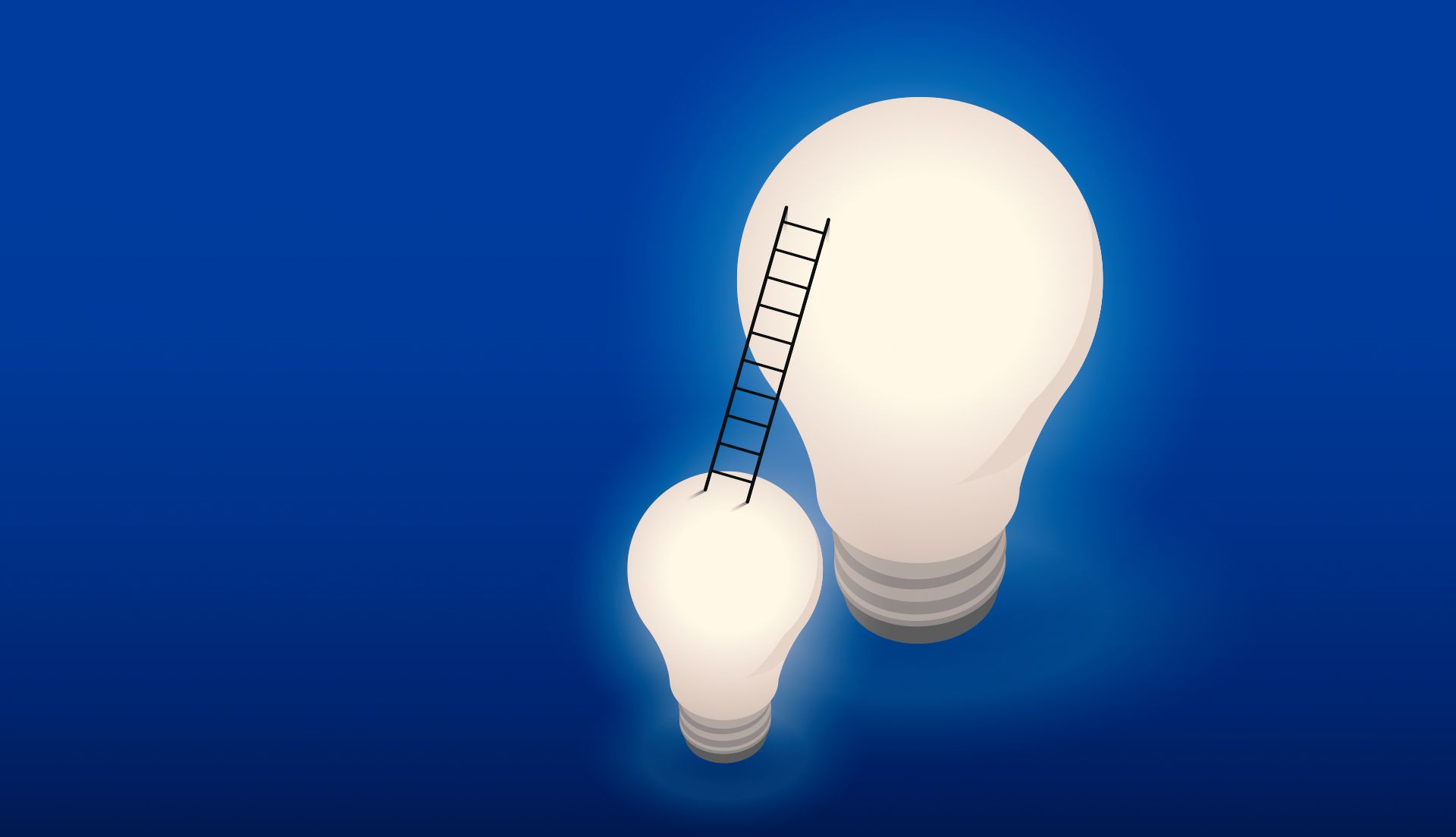Amy Poehler has been making people laugh — and defying what’s expected of the women we see on TV — for decades. From her portrayal of Hillary Clinton on Saturday Night Live to her seven-season run as Leslie Knope on Parks and Recreation, she has brought complex, empathetic characters to life that embody the strength and courage of women leaders. Off-screen, the actor, writer, director, producer, and bestselling author runs Amy Poehler’s Smart Girls — a website showcasing real girls who are changing the world by being themselves.
The comedy icon sat down with Chief Co-Founder Lindsay Kaplan for a conversation about the power of female friendships, what she’s reevaluating post-pandemic, and why the best leaders say “Yes, and…”
On What Improv Taught Her About Leadership
“You learn a lot by the way people listen to and take in ideas. In my experience, the most confident leaders are not challenged by big ideas. They are interested in them. They think about them. Really talented people are not afraid that their idea is their last good idea. So, you go for the good idea, and, when you watch that in action, it's really empowering. I think you start to get a real sense of trust in the person that's leading you, because if they go for the better idea in real time, what they're saying is, ‘Not only are my ideas not precious, but we are going to have the best idea.’
“I've had the privilege and pleasure of working with a lot of people. The most talented people are often the easiest to work with. They're not fear-based. They're like, ‘What do you want to do? That's interesting. Maybe I'll think about it.’ They process in real time, they know when to step up and lead, but they are not threatened and challenged by new ideas.
“Yes doesn't have to be, Yes, whatever you want — a blind yes. It can be a reluctant yes of This might be a bumpy road. Let's get in the car together, and let's take this bumpy ride together and see. Anytime people shut stuff down right away, bail, deny, all that kind of stuff, to me, it’s not a position of power. It's defensiveness, small-minded thinking.”
On When Saying ‘No’ Is a Gift
“I was joking the other day that I wrote this book called ‘Yes, Please’ maybe a decade ago, and now I just want to write a book called ‘No, Thanks,’ because I have to say that saying no is really, really powerful and it's also something I've really leaned into. I think, in general, there can be a very respectful, boundaried no that makes other people know that your time not only is valuable, but your time spent with them means something to you.”
On How to Lead With Humor
“I think humor is a sign of intelligence, and I think you learn a lot about somebody by what they laugh at and also what they joke about. There's a very fine-tuned balance as to how and when it should be used. There's a real sense of warmth and play that can happen when you trust your team, and humor can certainly find its place there and be used really effectively. It's tricky. It's kind of like heavy machinery, you can't be drunk while you're operating it. Go slow, go slow.”
On the Good Disruption from the Pandemic
“I think one of the things that this global pandemic did was it threw everything up in the air. For some people, it threw their entire livelihoods, their lives, their families up in the air, and we're watching everything land, and I think there are some pieces that are maybe not coming back down. And we're trying to figure out which ones we miss.
“There's a real dismantling about how corporations should be run, about who are the gatekeepers, who are the decision-makers, all that kind of stuff. Sometimes that can be really exciting, and threatening, and scary, and weird, and good, and all this stuff in between. I still feel like we're in the process where everything is coming back down, but it did feel like suspended time, and I think we all took a hard look at work, and what it meant for us, and what was important to us. For a lot of people, it was a time where they really had to take a hard look at what they wanted to work on, and how they wanted to work, and who they wanted to work with. I think we're just starting to figure out that metamorphosis we've all been going through.”
On Hollywood’s State of Diversity
“One of the things that has changed is the gatekeepers: People who make decisions, people who create, people who give the green light to creators and the money to creators. When you have a room like a writer's room that is diverse, you get diverse stories. If you have a studio that's run by all different kinds of people, then you get all different kinds of stories. I think what's been so exciting, specifically in television over the past 10, 15 years, is the way in which women's stories have been so successful, so interesting, and people have been interested in them. I think that has changed a lot. However, and again, here's where I want to put my own experience in the room: People who want change to happen never feel like change is happening fast enough.
“Social change never moves fast enough, and it shouldn't feel like it does. So as I say to you, ‘You don't know how much it's changed, oh my god,’ it's a really good indication that I have to be very careful, because there's so much work to be done. There's still so much disparity, for example, with female directors. There's still such a low percentage of women directing feature films, and women of color getting their projects made, and financial support, and promotion, and distribution, and success… it's that middle space that you have to stay in, or else you can get a little stuck. Yes, boy has it changed, and yes, boy do we have a long way to go.”
On Why You Should Follow Your Instincts
“We all have this inner voice or, hopefully, this guide — a way to tell us where we think we're supposed to go. It's just about listening to that over and over again, privileging that, privileging yourself, privileging your point of view, your creativity. I bet there's a lot of people in this talk today that had a feeling and a sense about where to go next or what to do, and there's really no worse feeling than when you don't listen to that. When you listen to it and you fail, it sucks. But when you don't listen to it and you fail, it really sucks. So, it's (important to) turn up the volume of your own voice, really paying attention to it, and quiet down and figure out whose journey you want to be on. It's always an inside job.”
On the Power of Female Friendships
“Female friendships are kind of like an untapped natural resource. They are ways that we gain strength, and we're likely using our female friendships to run a lot of things. I love watching it in the work that I do and trying to produce and do stuff that explores female friendships, because I do think they're very profound. And I do think that we have a lot of time to catch up on. I don't think female friendships, for a very long time, were lauded in the same way that male friendships were. There's still so many stories to tell there. There's this idea where you can create and find sisters in the world, kind of like chosen sisters, that can be people you can learn from, and people you can grow with, and who knew you when, and who know you now, and who still like you, even though they know you. I mean, that’s a good friend.”

